Your team is chosen for you as a birthright, and from that moment forward, you support those “colors” like a badge of honor. For many fans, this devotion is so strong that they actually tattoo that badge on their arm, back, or chest as a lifelong mark of loyalty.

On game day, you forge through the crowded city sidewalks as fans spill out onto the streets, positioning themselves in view of the old boxy bar televisions. Screeches and cheers echo off high-rises and across neighborhoods with every change in momentum, creating an electrifying atmosphere that brings the entire city to life.
This is the power and importance of football (soccer, futebol, joga bonito) in Rio de Janeiro and across Brazil.
Brazil Football in Rio de Janeiro
I had the opportunity to watch my first football match in Rio de Janeiro this past weekend at Maracanã Stadium as my adopted team, Fluminense, squared off against Botafogo.
While the match didn’t work out in our favor, I learned a lot about football culture in Rio de Janeiro that I think visitors would find useful.
Here is a brief overview of football in Rio de Janeiro that will help you travel deeper in Brazil.
Season
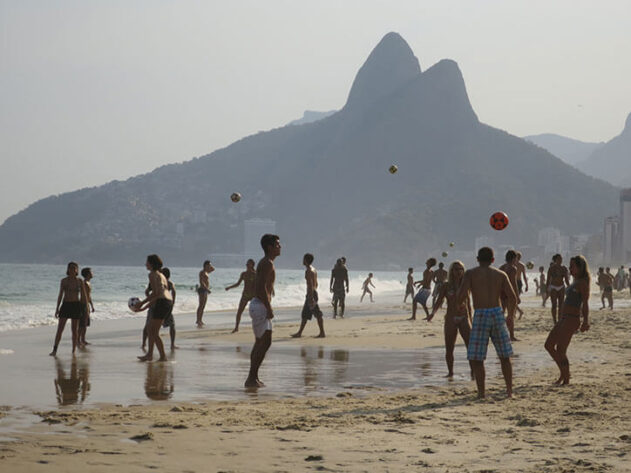
Rio de Janeiro’s Futebol Championship used to be played in two cups: Gunabara’s Cup and Rio’s Cup, which took place from January through May. The champions from each cup have a two-game playoff to determine Rio de Janeiro’s champion team.
This year however, they’ve changed the format to just one tournament (same time) called the Carioca Cup (Campeonato Carioca), which still takes place from January to May and determines the champion of Rio de Janeiro.
All 26 Brazilian states have their own state tournaments that happen simultaneously. Games are usually played on Wednesdays, Saturdays, and Sundays across the country.
From May through December, the Brazilian Championship takes place, where top teams from different states compete to determine a national champion.
Top finishers in the national tournament earn berths in the next year’s Libertadores Cup and South American Cup, two continental tournaments that run concurrently with parts of the state and national seasons.
There isn’t a big offseason for the best teams apart from a short breather between late December and early January.
Top Teams in Rio de Janeiro
There are four big major players in Rio de Janeiro Football; Flamengo, Fluminense, Botafogo and Vasco.
Flamengo has the largest number of fans in Brazil (and the world) and is considered the team of “the people.” No matter who’s team you favor, everyone seems to respect (or fear) the Flamengo crowd.
*It is said that when Flamengo makes it to the championship the crime rate goes up in the city so that their fans can pay for the tickets.
Fluminense, Flamengo’s archrival, is known as the “millionaires’ team”.
Very much divided by class like the Argentine superclasico, Boca Juniors (Popular) vs. River Plate (“Rich”) of Buenos Aires.
Politics in Brazilian Football
Ticket prices and game attendance often reveal the political undercurrents of football in Brazil.
For instance, Botafogo is currently competing in the Libertadores tournament, which crowns the South American champion, making the Carioca tournament less of a priority. As a result, they rest their starters and don’t draw their full fanbase for these games.
A similar situation happened a few weeks ago for the “Fla Flu” clasico, where Flamengo (also playing in Libertadores) raised the ticket prices to the highest in history (R$100) because they didn’t care about attendance and wanted to discourage fans from attending (hence devaluing the match).
Another major political aspect is the torcida organizada (Barra Brava). Like Argentina and many other countries around the world, they are an organized group of fans that dictate many of the clubs moves.
Read more about the Barra Brava here.
How to Get Tickets
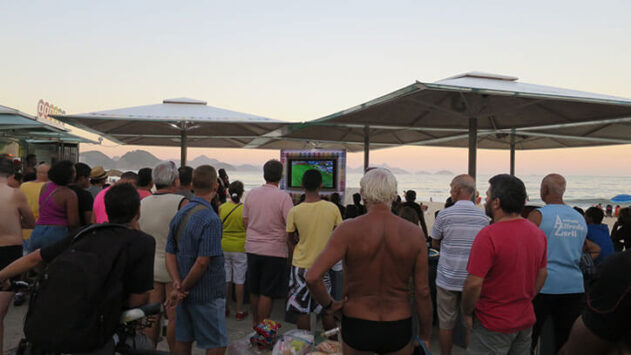
Fluminense, Flamego and Botafago always play at Maracana Stadium (home of the 2014 FIFA World Cup) and when they play each other there’s no home and away team. Vasco, however, plays at their own stadium, São Januário.
Rio football tickets can generally be bought at the stadium on game day, except for major matches like a clásico, championship, or Libertadores game.
For these events, it’s best to buy tickets a few days early at the stadium or at designated ticket offices (e.g., some grocery stores like Rio Sul sell tickets). Buying tickets directly is typically cheaper than through a hostel or hotel if you’re comfortable using Rio’s safe and reliable public transport.
Safety Tips for Football Fans
Despite the stories you may have heard, Brazilian football matches are relatively safe inside the stadium as long as you use common sense.
Fans are divided with barbwire fences and heavy security and you can reduce your risk by sitting closer to midfield.
Don’t wear or bring anything valuable and don’t sit too close to any ledges (in case of goal or riot stampede).
The most “dangerous” aspect of the experience is actually outside the stadium. Stick with the crowds and don’t hang around too long after the games if the area is unfamiliar.
The number one thing you can do to stay safe at the games (or anywhere for that matter) is go with a local who knows what you should and shouldn’t do.
Like This? Watch “How to Survive a Futbol Match in Buenos Aires” now.

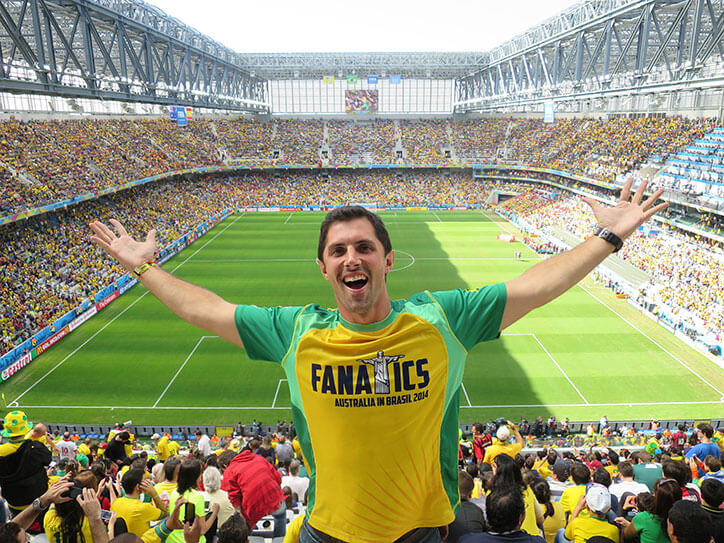
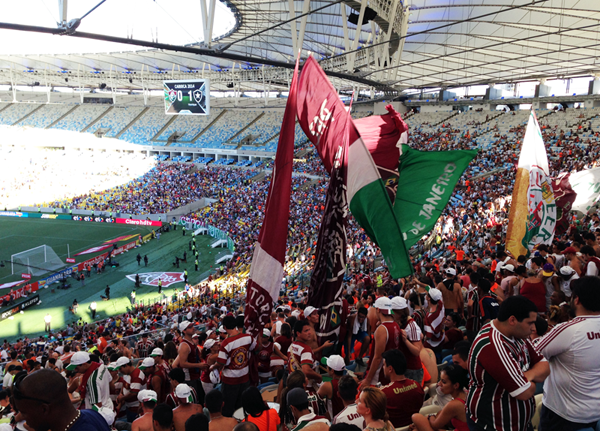


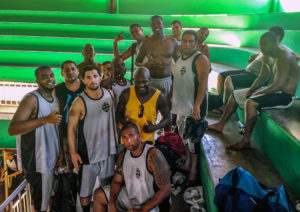











13 Responses
Brazil definitely loves their soccer. The fans are always so involved and supportive. For them, it is not just a sport; it is a way of life. Thanks for giving us a detailed glimpse into Brazil’s soccer atmosphere and the impact it plays on their culture. Appreciate the post!
Realmente os brasileiros amam o futebol. It’s the most popular sport in country. Who goes to Rio can not fail to visit the Maracana.
Very cool…. I´m brazilian, i liked your site… Fine teme
Show de bola….
Nice
Yes coolllllll smackkk
Thanks for this wonderful post. Football really os life in Brazil.
Brazil is the place of the beautiful football
Do they atill have a rio state championship or do these teams play in a national brazilian league with the sao paulo teams for example?
one of the best stadiums to watch a live soccer match.
7-1 victory in Brazil !!!
Football in Brazil is a national passion, and watching a live match in Rio de Janeiro will be a trip that you’ll never forget. The city can be a little rough around the edges, but its passion for the beautiful game is off the charts. It’s also one of the cheapest cities in which to watch a match.
I really enjoyed reading your blog post about soccer in Rio de Janeiro. I live in Brazil and I’m always interested in learning about Brazilian culture. I’m really glad you included a description of the importance of football in the city and the influence it has on the lives of people who live there!